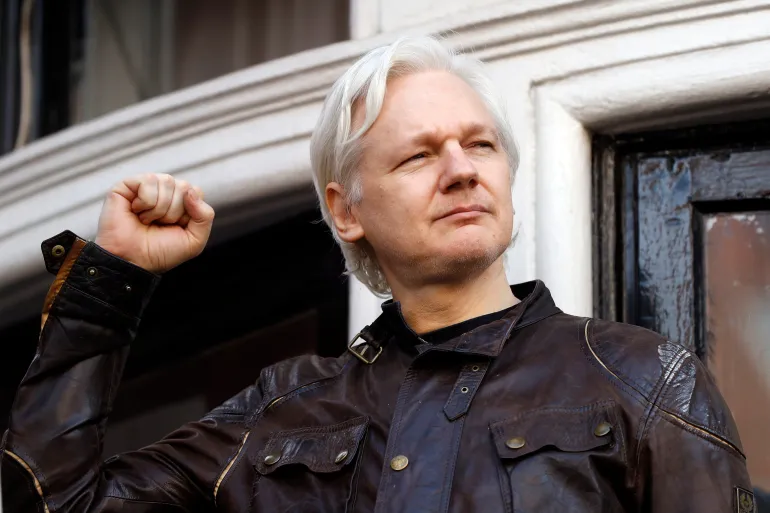
Julian Assange, the controversial founder of WikiLeaks, has been released from Belmarsh Prison in the United Kingdom and is on his way home to Australia following a plea deal with the United States. This significant development marks the end of Assange's lengthy battle against extradition to the US, where he faced numerous charges related to his role in publishing classified information.
Assange, 52, has agreed to plead guilty to a single charge of breaching US espionage laws. Specifically, he is accused of conspiring to obtain and disclose classified US national defense documents. This charge stems from WikiLeaks’ release of hundreds of thousands of classified US military and diplomatic documents, including sensitive information about the wars in Afghanistan and Iraq, as well as a cache of diplomatic cables. These leaks, which began in 2010, have had a profound impact on global perceptions of US foreign policy and military operations.
According to a filing in the US District Court for the Northern Mariana Islands, Assange will appear in court in Saipan, a US Pacific territory, at 9 a.m. on Wednesday (23:00 GMT on Tuesday) for sentencing. He is expected to receive a sentence of 62 months, effectively covered by the time he has already served.
“Julian Assange is free,” WikiLeaks announced in a statement on X, formerly known as Twitter. “He left Belmarsh maximum security prison on the morning of 24 June, after having spent 1901 days there. He was granted bail by the High Court in London and was released at Stansted Airport during the afternoon, where he boarded a plane and departed the UK.”
A video posted by WikiLeaks showed Assange, dressed in a blue shirt and jeans, signing a document before boarding a private jet. The plane carrying Assange made a brief stop in Bangkok to refuel before heading to Saipan. Following his court appearance and subsequent release, Assange is expected to return to Australia.
Stella Assange, Julian’s wife, expressed her relief and joy at the news of his imminent freedom. “I’m just elated,” she said, speaking from Australia. “He will be a free man once it has been signed off by the judge, and that will happen sometime tomorrow.” Stella, who has been a vocal advocate for her husband throughout his legal ordeal, described the news as “incredible.”
Assange rose to international prominence in 2006 with the launch of WikiLeaks, a platform designed to allow whistleblowers to anonymously submit classified material. The website gained widespread attention in 2010 with the release of a video showing a US Apache helicopter attack in Baghdad, which killed a dozen people, including two journalists. This was followed by the publication of a vast trove of US military and diplomatic documents, which sparked both outrage and acclaim around the world.
Assange’s legal troubles began in earnest in 2012 when he sought asylum in the Ecuadorian Embassy in London to avoid extradition to Sweden over allegations of sexual misconduct, which he denied. He remained in the embassy for nearly seven years until his asylum was revoked in April 2019, leading to his arrest by UK authorities. He has been held in Belmarsh Prison since then, fighting extradition to the US.
Assange's release and the plea deal represent a significant moment in his long-running saga. While his actions have made him a polarizing figure, they have also sparked important debates about press freedom, government transparency, and the public's right to know. As he heads back to Australia, Assange's future remains uncertain, but his impact on global journalism and international politics is undeniable.











